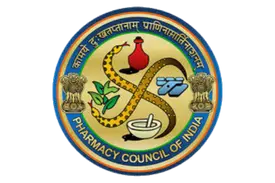- Graduates will have a comprehensive understanding of the pharmaceutical industry and its various aspects, including medicinal chemistry, pharmacology, pharmaceutics, and pharmacognosy.
- Graduates will be equipped with practical skills and hands-on experience through laboratory experiments, industrial visits, and internships. They will be able to apply their knowledge to solve real-world problems in the pharmaceutical industry.
- Graduates will develop critical thinking and analytical skills to evaluate information, identify problems, and propose solutions in the pharmaceutical industry.
- Graduates will develop effective communication skills, both oral and written, to interact with peers, clients, and stakeholders in the pharmaceutical industry.
- Graduates will understand and adhere to ethical and professional behavior in the pharmaceutical industry. They will have a strong sense of responsibility, integrity, and accountability towards their profession and society.
- Graduates will have a wide range of career opportunities available to them, including research and development, production, marketing, and academia. They will be able to pursue advanced studies or enter the workforce as competent and qualified pharmacists.
- Community Pharmacy: Graduates can work in community pharmacies, either independently or as part of a chain, dispensing medications and providing healthcare advice to patients.
-
Hospital Pharmacy: Graduates can work in hospitals, providing medication management services to patients, working with healthcare professionals to optimize patient care, and ensuring compliance with regulatory requirements.
-
Pharmaceutical Industry: Graduates can work in the pharmaceutical industry, in areas such as research and development, manufacturing, quality control, regulatory affairs, and sales and marketing.
-
Academia and Research: Graduates can pursue further studies and research in pharmacy, leading to careers in academia or research institutions.
-
Government and Regulatory Agencies: Graduates can work in government agencies, such as drug regulatory bodies, providing regulatory oversight and ensuring compliance with regulations.
-
Entrepreneurship: Graduates can start their own business ventures, such as community pharmacies or pharmaceutical manufacturing units, using their knowledge and skills in pharmacy to provide innovative and quality products and services.
A candidate who has passed two years pre-university examination conducted by the pre-university education board in the state of Karnataka or 10+2 by CBSE or any other examination considered as equivalent there to shall be eligible for admission to this program.
- Admission Fee – ₹50,000/-
- First Year – ₹175,000/-
- Second Year – ₹75,000/-
- Third Year – ₹75,000/-
- Fourth Year – ₹75,000/-
Total — ₹4,50,000/-




